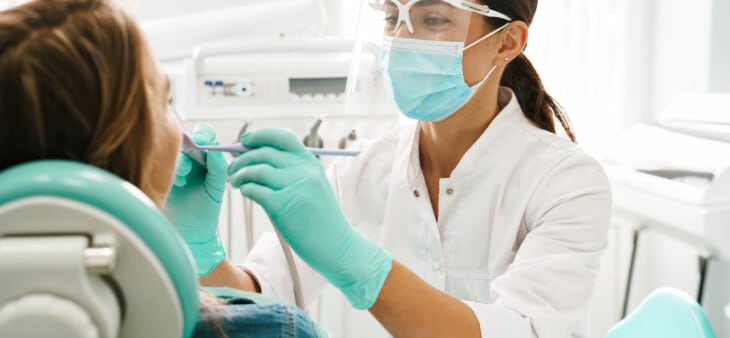
Oral cancer is estimated to affect around 54,540 Americans yearly and can silently advance and become life-threatening if not detected and treated early. With a growing awareness of its prevalence, it’s essential to understand the importance of early diagnosis through regular oral cancer screenings.
What is Oral Cancer?
Oral cancer refers to cancers that develop in any part of the mouth, including the tongue, lips, floor of the mouth, cheeks, hard and soft palate, pharynx, and sinuses. Like other cancers, it originates when cells in the mouth or on the lips mutate and grow uncontrollably, forming tumors or lesions.
Why Early Detection Matters?
Catching oral cancer in its initial stages isn’t just about timely treatment; it’s a crucial step that can impact health outcomes, treatment intensity, and overall quality of life.
- Improved survival rates: The earlier oral cancer is detected, the better the prognosis. When caught in the initial stages, the 5-year survival rate for lip cancer is up to 91%, and 69% for tongue cancer. Sadly, many cases are identified in the later stages, reducing the survival rate.
- Less invasive treatment: Early detection often means the cancer hasn’t
spread, allowing for less aggressive and more focused treatments like targeted drug therapy or immunotherapy. - Better quality of life: Earlier treatments tend to have fewer side effects and lead to faster recovery, ensuring patients retain a better quality of life post-treatment.
Signs and Symptoms of Oral Cancer
While screenings are crucial, being aware of early symptoms enables you to schedule a checkup as early as possible. Warning signs include:
- Persistent sores or ulcers that don’t heal within two weeks.
- Difficulty or pain while chewing, swallowing, or speaking.
- White or red patches inside the mouth.
- A lump or thickening in the cheek.
- A persistent sore throat or feeling that something’s stuck in the throat.
Oral Cancer Screening Process
Oral cancer screening is a quick, painless process. During a routine dental check-up, your dentist will perform a:
- Visual exam: Examine your lips, face, neck, and inside of your nose and mouth. At Aurora Dental Group, we use the VELscope Vx to find oral mucosal abnormalities and diseases in the mouth that might not be visible to the naked eye. It uses a safe blue light and fluorescence technology to highlight suspicious tissues and lesions, aiding in the early detection of oral cancers and pre-cancerous conditions.
- Physical exam: The dentist will touch your head, cheeks, jaw, chin, and oral cavity to feel for any unusual nodules or areas of thickness and tenderness.
Reducing Your Risk
While regular screenings are essential, you can actively reduce your risk of oral cancer by:
- Avoiding tobacco products.
- Limiting alcohol consumption.
- Using a protective lip balm with SPF when outside.
- Eating a diet rich in fruits and vegetables high in antioxidants like leafy greens and berries.
- Practicing safe sex (some oral cancers are linked to the human papillomavirus or HPV).
Protect Your Health
Oral cancer can be effectively tackled with early detection. Regular screenings combined with a proactive approach to your oral health can reduce risks and ensure a healthier, brighter future. Always consult your dentist if you notice any changes or have concerns about your oral health.
Schedule your oral cancer screening at the Aurora Dental Group and take the first step toward ensuring your oral well-being.
